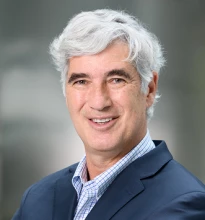 Photo credit: Jessica Belmont/World Bank.
Photo credit: Jessica Belmont/World Bank.
Despite numerous calls to action, the aging agenda remains under the radar, especially when compared to other “mega trends” like climate change and digital transformation.
Understanding demographic changes
Why is aging being overlooked? There are three key aspects of demographic changes that are not well understood, which we believe is contributing to the lack of policy attention:
- Speed of aging in developing economies: Developing economies are aging at a much faster rate than developed ones. For instance, it took France 115 years for the share of the population over age 65 to double from 7 percent to 14 percent, whereas in populous countries like Brazil, China, India, and Vietnam, this transition will happen in less than 30 years.
- Impact on all regions: Rising longevity affects all regions. In Sub-Saharan Africa, the number of elderly people will soon match those in Europe, growing from 70 million in 2020 to 235 million in 2050. Yet, we hear much more about fertility rates and working-age populations in this region instead.
- Opportunities for healthy longevity: For the first time in history, there is a cohort of almost a billion people between 60 and 79 years old who are increasingly in good health. On average, a person who was 70 in 2022 had the same cognitive ability as a 53 year-old in 2000, according to a recent study covering over 40 countries by the International Monetary Fund. For many of us, the 70s really can be the new 50s! Ensuring this group remains productive is vital for managing this demographic mega trend smoothly.
Why the aging challenge can’t wait
Aging and longevity bring complex challenges that countries and development institutions must address. Many different sectors are affected by these concerns including health, social protection, pensions, jobs, and financing. Non-communicable diseases, which usually increase with aging, are also placing growing pressure on developing countries’ systems and budgets.
Developing countries are at various stages of the aging process. Some are already facing issues arising from large elderly populations who need pensions and care for long periods, while others still have time before this happens. But since most developing countries are aging quickly, it’s crucial that we act soon.
Supporting healthy aging is key. A recent World Bank report offers practical solutions that countries can customize to help their populations age well.
Building a policy framework for aging
The report outlines a comprehensive policy response to the aging phenomenon that can be divided into three pillars:
- Healthy aging: Countries need to take action throughout the entire life course—from childhood to old age—to ensure that people remain healthy. Better health helps people stay active and productive as they age, while reducing health care costs, improving well-being, and benefitting the overall economy. Healthy aging is integral to achieving the World Bank’s ambitious target of assisting countries in providing quality, affordable health services to 1.5 billion people by 2030.
- Prosperous aging: As job stability decreases, being healthy allows older people to have the opportunity to work if they choose. Various strategies can help elderly groups get jobs and keep them employed, including targeted and timely training that’s tailored to how older adults learn and addressing the lack of part-time and remote work and paid care leave.
We are working across the World Bank Group on this agenda. For example, the International Finance Corporation launched a Silver Economy program that supports banks in Latin America to issue “silver bonds,” which provide financing for older entrepreneurs. Dignified aging: It is critical to provide social pensions to prevent old age poverty, savings schemes for informal workers, and less regressive formal and public pension systems. As part of this work, the World Bank engages in multisector policy reform dialogues in around 50 countries and is developing tools to help with the implementation of long-term care support, including how to regulate and oversee the private provisioning of services. For example, in partnership with the Japan Social Development Fund, we have supported almost 25,000 elderly people in Vietnam since 2021 through a community-based care model that provides services to seniors, women, and disadvantaged groups and boosts income-generating activities for older people.
Increased longevity is one of development’s success stories, especially with the right policies in place. The next frontier is to ensure older individuals have good health, sufficient income, and adequate care and support while younger individuals can plan for their future needs and aspirations. By embracing a holistic approach to aging, we can transform this demographic shift into an opportunity for healthier, more prosperous, and more resilient societies.



Join the Conversation